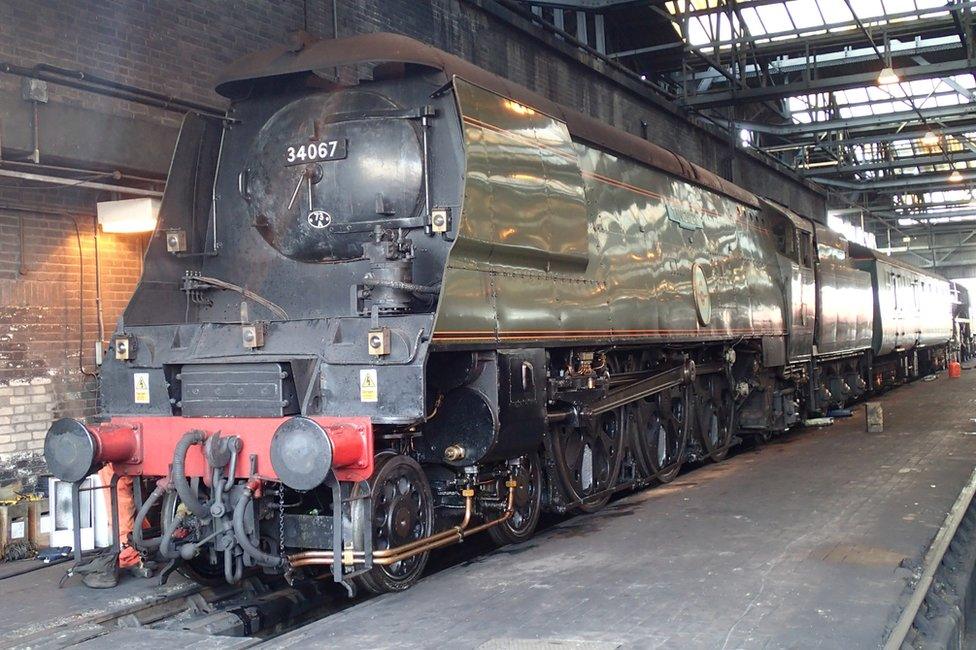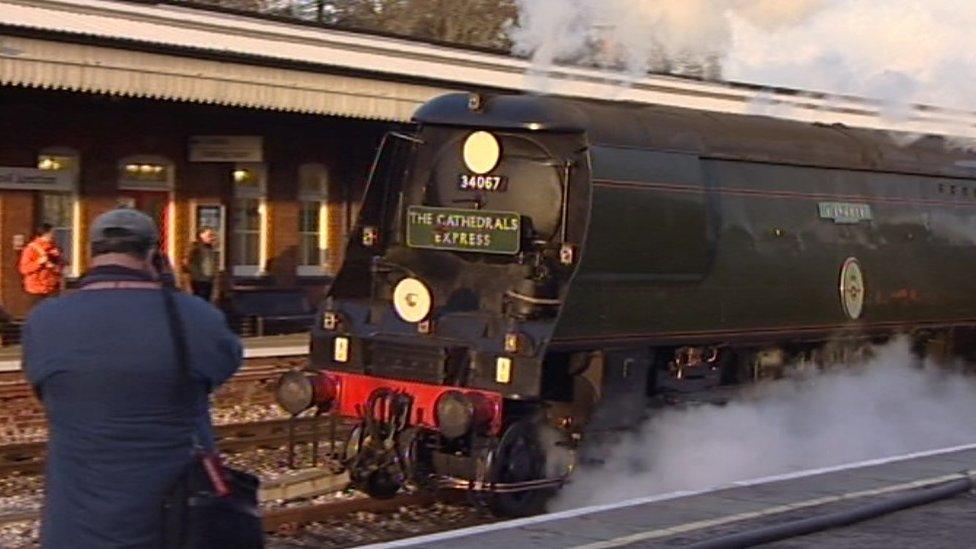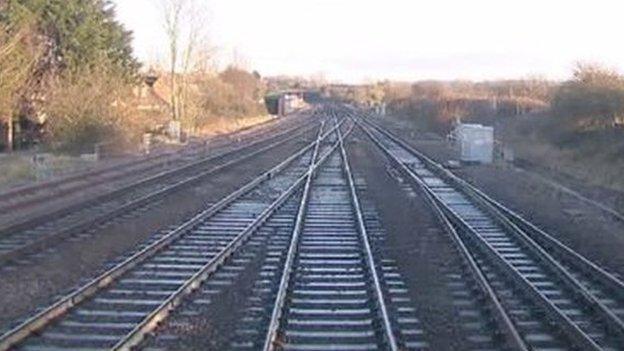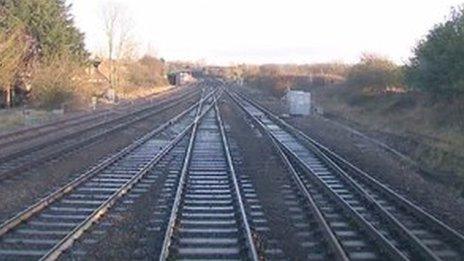RAIB concludes Wootton Bassett steam train investigation
- Published

The 'Tangmere' locomotive was brought to a halt over a mainline junction
A number of rail safety recommendations have been made after a steam locomotive came to a stop over a mainline junction in Wiltshire last year.
Three of the five recommendations are addressed to West Coast Railway (WCR) which was operating the charter service when it passed a signal at danger.
No-one was injured and no train was damaged as a result of the error.
The Rail Accident Investigation Branch (RAIB) says WCR's safety culture should be reviewed, among other conclusions.
Its 89-page final report, external also calls for the Rail Safety and Standards Board to review the arrangements which mitigate risks associated with steam travel.
In addition, a recommendation about implementing emergency and temporary speed restrictions has been addressed to Network Rail.
The incident happened on 7 March 2015 when the driver of the 'Tangmere' locomotive, hauling 13 coaches from Bristol Temple Meads to Southend, was unable to stop in time after realising it was in danger, according to the RAIB.
An automatic brake application had also been by-passed by the train's crew, the report says, which rendered the Train Protection and Warning System "ineffective".
The signal SN45 was showing a danger warning because a high-speed passenger train had recently passed through the junction, situated near Wootton Bassett.
Lancashire-based West Coast Railways has been in operation since 1998 and operates charter trains "along some of the UKs most famous and scenic routes", such as the Jacobite steam train in Scotland and The Scarborough Spa Express, according to its website.
The RAIB's purpose is to investigate railway accidents and incidents in the UK to improve safety, not to establish blame.
- Published20 October 2015

- Published28 March 2015

- Published30 March 2015
